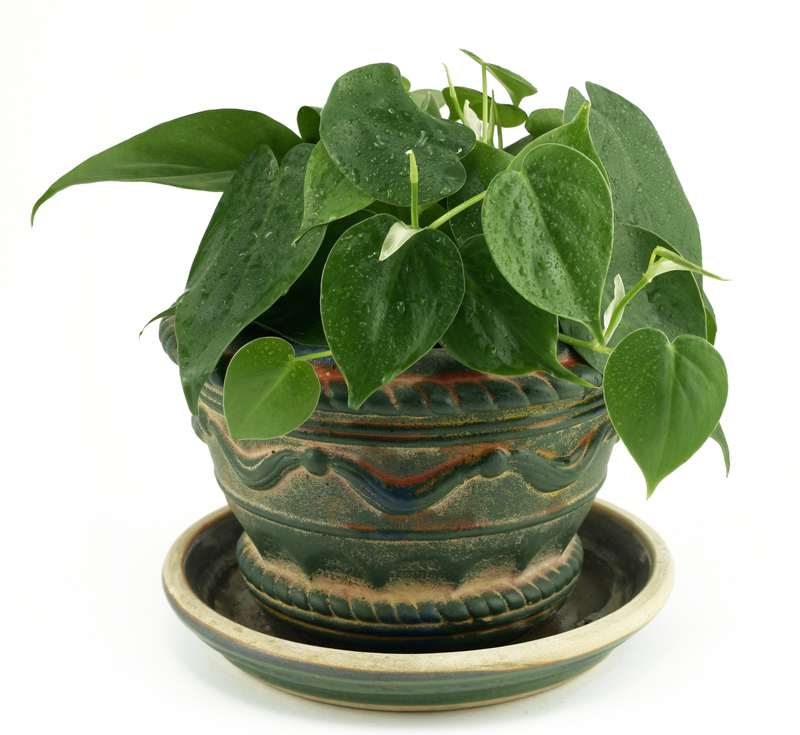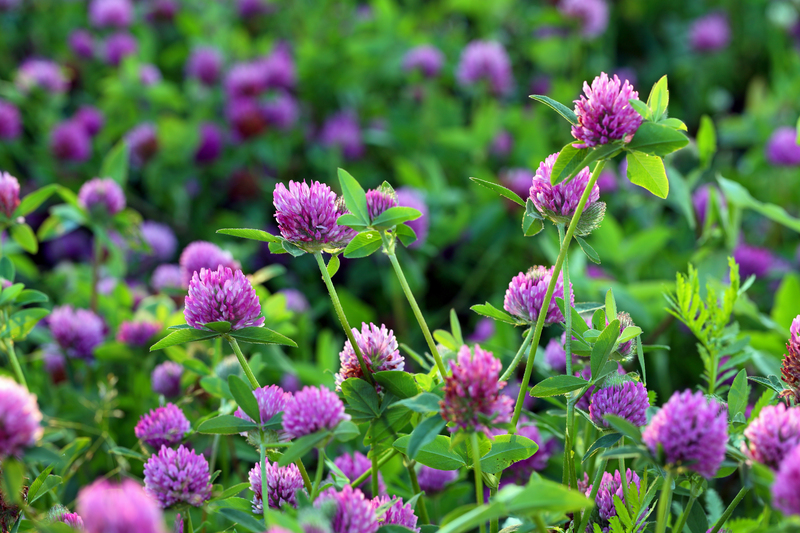New to Gardening? Discover 9 Vital Tips to Get You Started
Posted on 21/09/2025
New to Gardening? Discover 9 Vital Tips to Get You Started
Are you new to gardening and feeling overwhelmed? Embarking on your first gardening adventure can be both exciting and a little daunting. But don't worry! Whether you have a sprawling backyard or just a few pots on your balcony, gardening is a rewarding hobby that anyone can enjoy. In this comprehensive guide, you'll discover the nine most vital gardening tips to help beginners successfully grow healthy plants, cultivate beautiful flowers or harvest delicious vegetables.
Essential Gardening Tips for Beginners
Before digging in, remember that gardening for beginners is about learning, experimenting, and enjoying the process as much as the results. Below you'll find actionable advice, pro tricks, and answers to common questions--everything you need to plant your green roots with confidence.
1. Choose the Right Location
Your garden's location will significantly affect the success of your plants. Most vegetables, herbs, and flowers need plenty of sunlight--typically 6 to 8 hours per day.
- Observe sunlight patterns: Take note of which areas receive full, partial, or little sunlight throughout the day.
- Easy access to water: Ensure your garden is close to a water source for convenience.
- Good soil drainage: Avoid spots where water tends to pool after rainfall, as most plants dislike soggy roots.
Tip: If outdoor space is limited, consider starting a container garden or using raised beds to maximize your growing potential.
2. Know Your Gardening Zone
Learning your USDA Plant Hardiness Zone or equivalent for your country is crucial. This tells you which plants grow best in your region and can withstand your climate.
- Research your zone on the USDA interactive map or local gardening resources.
- Choose varieties labeled for your area for higher success and less maintenance.
Understanding your planting zone helps prevent the disappointment of dead or stunted plants due to unsuited conditions.
3. Start Small and Simple
It's tempting to dream big when you're new to gardening, but beginning with a manageable plot or a few containers is smart. This approach makes gardening less overwhelming and more enjoyable.
- Pick 4-6 easy plants to start. Good beginner choices include lettuce, radishes, marigolds, basil, or sunflowers.
- Containers or raised beds: These make it easier to control soil quality and moisture levels.
Remember: You can always expand your garden in the following seasons as you gain confidence!
4. Invest in Quality Soil
Soil is the foundation of a thriving garden. Great soil delivers nutrients, holds moisture, and supports healthy root systems.
- Test your soil: Simple pH kits tell you whether your soil is acidic, neutral, or alkaline.
- Add organic matter: Mix in compost, leaf mold, or well-rotted manure to improve clay or sandy soils.
Pro tip: Rich, dark, crumbly soil is what you're aiming for!
5. Select the Best Plants for Beginners
Some plants are more forgiving than others--perfect for someone new to gardening. Focus on hardy, easy-to-grow varieties to boost your early success.
- Vegetables: Tomatoes, green beans, carrots, zucchini, salad greens.
- Herbs: Basil, rosemary, mint, chives, parsley.
- Flowers: Marigolds, zinnias, sunflowers, pansies, nasturtiums.
Read plant tags for specific light, spacing, and watering requirements. Local nurseries can also recommend top plants for novice gardeners in your area.
6. Learn Proper Watering Techniques
Water is crucial, but too much or too little can stress plants. Understanding how and when to water is a key gardening skill.
- Water early in the day: Reduces evaporation and allows foliage to dry before evening (helping stop fungal diseases).
- Deep, infrequent watering: This encourages strong root growth. Most gardens do well with 1-2 inches per week.
- Check the soil: Stick a finger an inch into the soil; if it's dry, it's time to water.
Caution: Avoid watering leaves directly; aim for the base of the plants to reduce disease risks.
7. Feed and Mulch Your Plants
Fertilizing and mulching your plants gives them the boost they need to grow vigorously and stay healthy.
- Natural fertilizers: Compost or well-rotted manure support soil biology and plant health.
- Mulch protects soil: Use straw, bark, or shredded leaves to lock in moisture, prevent weeds, and regulate soil temperature.
Mulching is one of the simplest ways to create a low-maintenance garden for years to come.
8. Regular Garden Maintenance Is Key
Gardens thrive with regular attention and care. Make a simple maintenance routine part of your gardening journey.
- Weed regularly: Weeds compete for moisture, space, and nutrients.
- Prune smartly: Remove dead, diseased, or overcrowded foliage to improve airflow and appearance.
- Monitor for pests and diseases: Check leaves and stems for unusual spots, holes, or insects and act promptly if you spot trouble.
Tip: A little care each week is easier and more effective than trying to fix big problems later.
9. Enjoy, Record, and Keep Learning
The most important gardening tip for beginners is to enjoy the process! Take photos, jot down notes of what works (and what doesn't), and experiment with new plants or designs each season.
- Keep a garden journal: Record plant varieties, dates, successes, and challenges for future reference.
- Connect with local gardeners: Community gardens and online groups are packed with advice and support.
- Celebrate small victories: A homegrown tomato or a blooming sunflower brings joy and satisfaction!
Gardening is a journey of continual discovery. Every season deepens your connection with nature and your outdoor space.


Frequently Asked Questions About Starting a Garden
How do I start a garden with no experience?
Start simple! Choose a few easy plants and grow them in pots, raised beds, or a small patch of soil. Use quality soil, water consistently, and learn as you go. Mistakes are the best teachers for any new gardener.
How much time does a beginner gardener need?
Typically, new gardeners can start with just 15-30 minutes a few times a week. As your garden grows, you may spend more time, but gardening is very flexible--adapt it to your lifestyle.
What are the best tools for someone new to gardening?
- Gloves: Protect hands from thorns, soil, and bugs.
- Hand trowel: Essential for planting and transplanting.
- Watering can or hose: For easy watering.
- Pruning shears: Keep plants tidy and healthy.
- Spade or shovel: Useful for larger gardens.
Invest in good-quality tools to make gardening tasks more efficient and enjoyable.
How do I know if my plants are getting enough sunlight?
Watch for signs--plants that become "leggy" or grow tall and thin are likely stretching for light. Leaf discoloration and low flowering are also common. Adjust the location of your pots or choose new plants suited to your garden's light conditions.
Final Thoughts - Embrace Your First Gardening Season!
Being new to gardening opens a world of creativity, health, and satisfaction. By choosing the right location, starting simple, caring for your soil, and observing your plants closely, you set yourself up for an enjoyably green thumb.
To recap, here are the 9 vital beginner gardening tips:
- Choose the right location with adequate sunlight and access to water.
- Know your local gardening zone and plant accordingly.
- Start small to avoid overwhelm and ensure early success.
- Use high-quality soil and organic matter for robust plant growth.
- Select forgiving, beginner-friendly plants.
- Master watering techniques to avoid common pitfalls.
- Feed and mulch plants for healthy, low-maintenance gardens.
- Maintain your garden regularly for the best results.
- Record experiences, keep learning, and enjoy your green journey!
Gardening for beginners isn't about getting everything perfect on the first try--it's about patience, observation, and enjoying each seedling and bloom. By following these tips, you'll kick-start your gardening adventure with confidence. Let your love for plants, nature, and the outdoors flourish, one step at a time!
Ready to get your hands dirty? Share your gardening goals or first steps in the comments below--let's cultivate a thriving community of new gardeners!
Latest Posts
New to Gardening? Discover 9 Vital Tips to Get You Started
Transform Your Backyard into a Child's Paradise
Container Gardening: The Art of Small Space Cultivation



